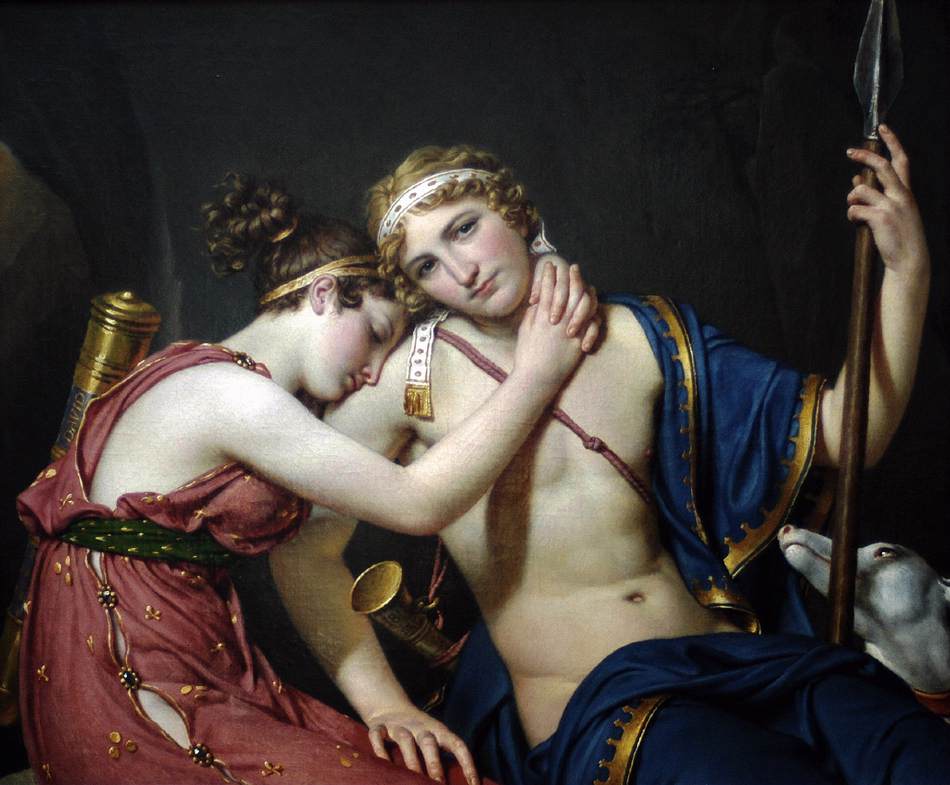Description
The painting "The Farewell of Telemachus and Eucharis" by the artist Jacques-Louis David is a masterpiece of French neoclassicism. This artwork was created in 1818 and depicts a farewell scene between Telemachus, the son of Odysseus, and Eucharis, his beloved.
The composition of the painting is impressive. The characters are located in the center of the work, while the landscape behind them fades into the distance. The figure of Telemachus is in the foreground, holding Eucharis's hand as he looks back sadly. Eucharis, for his part, looks ahead with a resigned expression on his face.
The color in the painting is subtle and elegant. The pastel shades of the characters' dresses contrast with the dark green of the forest behind them. The sky is a soft blue, giving the work a sense of tranquility.
The story behind the painting is fascinating. It was commissioned by King Louis XVIII of France to decorate his palace at Versailles. However, the work was not well received by the public due to its neoclassical style and unexciting subject matter. As a result, it was removed from the palace and sold to a private collector.
An interesting and little known aspect of the painting is that David used his wife as a model for Eucharis. The figure of Telemachus is also said to be based on the artist's own son.
In short, "The Farewell of Telemachus and Eucharis" is an impressive work of art that stands out for its composition, color, and subject matter. Although not well received in its day, it is today considered one of the most important works of French Neoclassicism.

